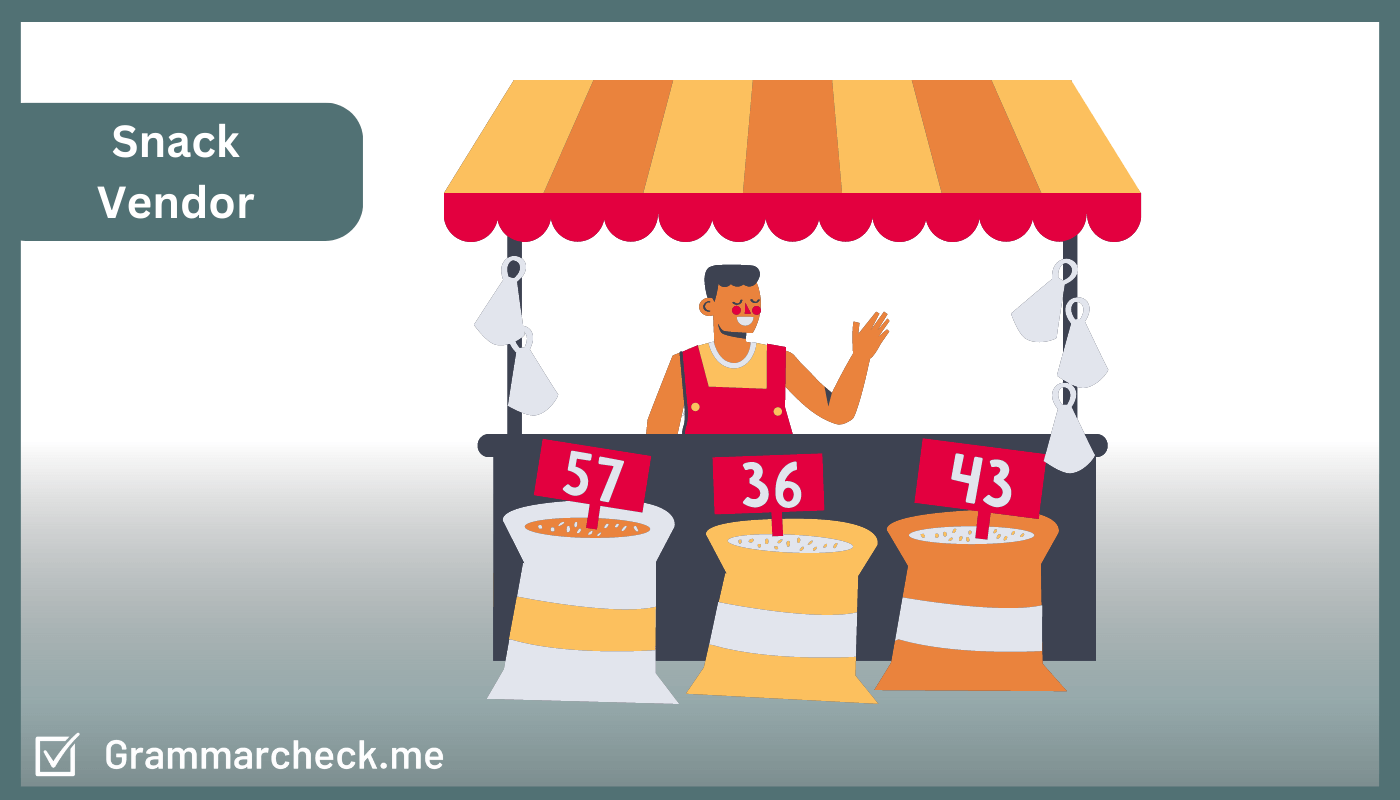Vendor is a seller or supplier of goods or services, while vender is the less common variant.
The terms vender and vendor are closely related in meaning and usage, but they differ primarily in their regional spelling variations.
What does vendor mean?
Vendor is the more widely accepted and standard form of the word in American English. It refers to a person, company, or entity that sells goods or services, often in a commercial or retail setting.
Example sentence
- The vendor at the street fair sold handmade jewelry.
What does vender mean?
Vender on the other hand, is a less common spelling variation found in British English and some other English-speaking regions. It carries the same meaning as "vendor," referring to someone who sells goods or services. However, it's considered non-standard in American English.
Common idioms/phrases
- Street vendor: Refers to someone who sells goods or food items on the street or in public places, often from a mobile cart or stall.
- Vendor booth: A small area or stand where a vendor displays and sells their products, often at markets, fairs, or events.
- Vendor fair: An event or gathering where multiple vendors come together to showcase and sell their products or services.
- Vendor selection: The process of choosing or selecting a vendor or supplier for a particular product or service based on criteria such as quality, price, and reliability.
- Preferred vendor: A vendor or supplier that a business or organization has established a positive and ongoing relationship with and often receives preferential treatment or consideration.
- Vendor financing: When a vendor or supplier provides financing or credit terms to a buyer, allowing them to purchase goods or services with deferred payment.
- Vendor lock-in: A situation where a customer becomes heavily dependent on a specific vendor's products or services, making it difficult to switch to an alternative vendor.
- Vendor management: The process of overseeing and managing relationships with vendors or suppliers to ensure they meet the organization's needs and standards.
- Vendor-neutral: Describes a situation where there is no bias or preference for a particular vendor, ensuring fair competition and evaluation of options.
- Vendor showcase: An event or presentation where vendors demonstrate their products or services to potential customers or clients.
In practical terms, whether you use "vendor" or "vender" depends on your regional context and the specific style guide or language convention you are following. In American English, "vendor" is the preferred spelling, while in British English and certain other contexts, "vender" may be encountered. Regardless of the spelling, both words refer to individuals or entities engaged in selling products or services to customers.
Want to sound like a native speaker?
Engram’s AI-powered grammar checker makes your English sound like a native speaker’s, suggesting natural English expressions on top of fixing grammar, spelling, punctuation, word order, and vocabulary.














